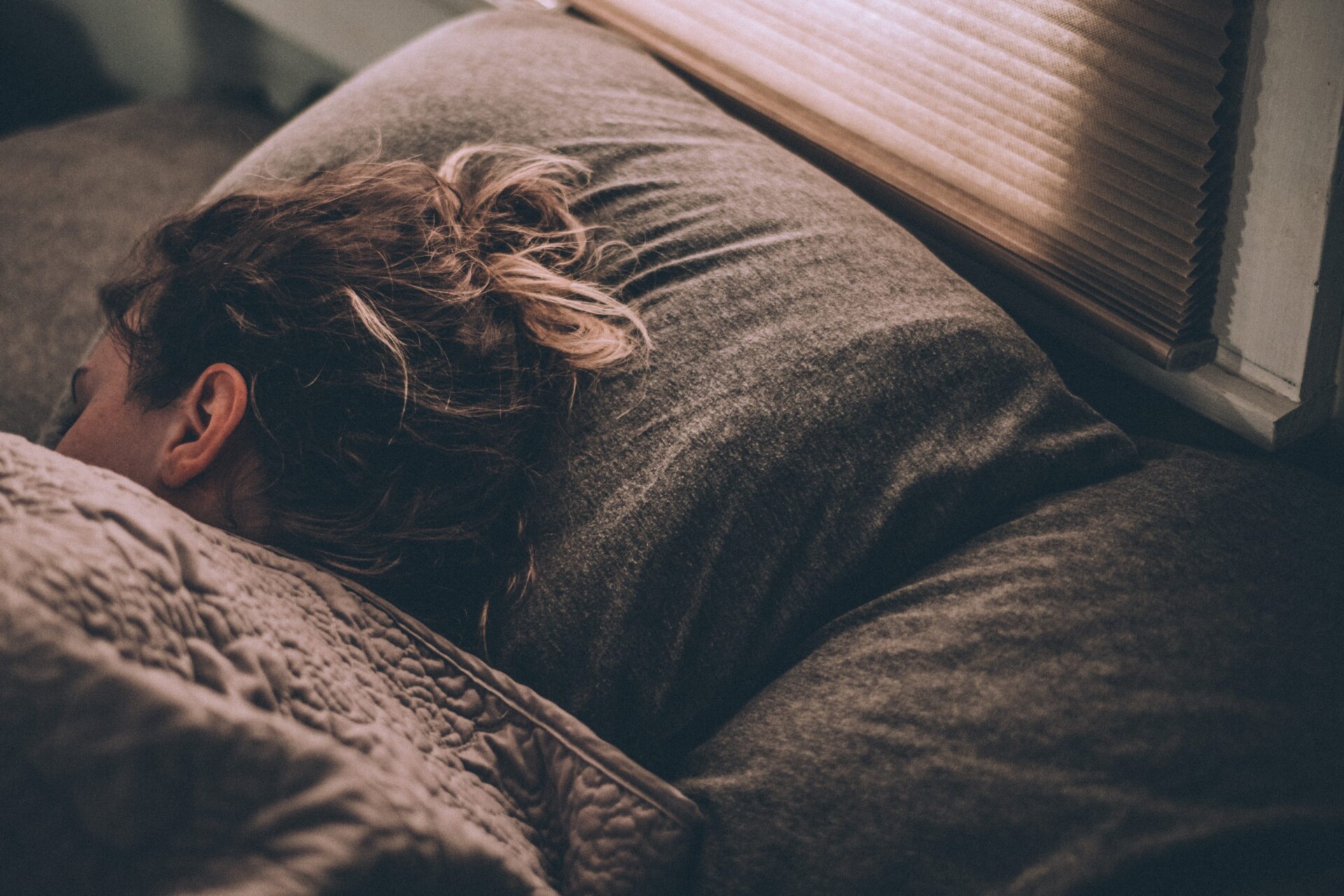The Importance of SLEEP
Sleep is a big part of one’s daily life routine, as the average human spends a third of their life sleeping. Yet not enough people place enough emphasis on sleep or get the amount of sleep that they need in order to maintain a healthy lifestyle. The CDC classified insufficient sleep to be a public health problem back in 2011 and a study done by Harvard Medical School showed that in the past 50 years, the average amount of sleep has dropped from eight and a half hours to less than seven. This deficiency in sleep has its consequences on the human body. The term sleep deficiency is a broad concept that encompasses different things. It occurs when:
- One doesn’t get enough sleep, also called sleep deprivation
- One sleeps at the wrong time of the day, which alters their circadian rhythm
- One doesn’t get the quality of sleep needed
- One has a sleep disorder preventing the ideal amount of sleep from occurring
Studies show that chronic loss of sleep is associated with multiple diseases and illnesses such as cancer, diabetes, obesity, heart disease, Alzheimer’s, dementia, depression, and stroke.
Sleep and Brain Health
Studies show that getting enough quality sleep improves the ability to learn and retain information. As we sleep, our brain creates new pathways in our neurons to help learn and remember information. It has also been shown that sleep aids inattentiveness, decision-making, and creativity.
Over the course of the night, we enter different stages of sleep including REM (rapid eye movement) sleep. This stage of sleep is associated with dreaming, active eye movements, and sleep paralysis, which is a protective mechanism to protect the individual from acting out their dreams. In this stage of sleep, there is increased activity of certain limbic structures involved in memory and emotional regulation. Therefore, REM sleep is pivotal for memory and other cognitive functions. There are other stages of sleep that aid in other ways, like slow-wave sleep, which promotes motor skill learning.
When we don’t get enough quality sleep, our brain activity is altered leading to poor decision making, trouble with problem-solving, and difficulty controlling emotions and behavior. Research has also shown that sleep apnea leads to amyloid buildup, which is a protein found in neurodegenerative brain diseases like Parkinson’s. Although the importance of sleep should be a priority for everyone, it is especially important for the younger and elderly people in our population to get adequate sleep in order to develop and maintain important brain functions.
Sleep and Physical Health
There is also a huge correlation between sleep and our physical well-being. During sleep, our body sends out different hormones that aid in healing tissue and connective tissue in our body. For example, sleep is involved in the repair of our cardiac muscles and blood vessels. Therefore, as mentioned above there is a higher risk for heart disease, high blood pressure, and heart attacks if not getting the required amount of sleep.
Getting enough quality sleep also helps to maintain certain hormones in our body that modulate hunger. The hormone called ghrelin causes us to feel hungry and the hormone called leptin lets our body know when we are full. If the quality and length of sleep is disturbed, our body starts to produce more ghrelin and decrease the levels of leptin. This can lead to a higher chance of obesity. One study of teenagers showed that for each hour of sleep lost from normal, the odds of obesity increased. Obesity is also a huge problem with adults as reports show that 36% of adults in the United States are considered obese. During the last four decades, obesity rates have doubled worldwide, while insufficient sleep has also risen in the same time frame showing a likely correlation between lack of sleep and obesity.
Sleep and diabetes have also been linked together as insufficient sleep leads to a higher risk of diabetes. There are now studies showing that lack of sleep alters the way our body produces and uses insulin. Insulin is a hormone produced by the pancreas to regulate our blood glucose levels. Recent research shows that insulin operates on a daily cycle and any disruption to our circadian rhythm can reduce the effectiveness of insulin and lead to insulin resistance. In a study using mice, it was found that insufficient sleep led to increased stress on the pancreatic cells causing altered blood glucose levels. This disruption in blood glucose levels can lead to diabetes.
Sleep and Athletic Performance
At Block Chiropractic Sports and Physical Therapy, our providers work with all kinds of athletes ranging from the “weekend warrior” to professional athletes. With the increased research on the benefits of sleep, more and more high-level athletes have been trying to monitor their sleep habits. Getting adequate sleep is pivotal for recovery especially after grueling practices or following the competition. Working in conjunction with protein from our diet, our body produces muscle-building hormones like human growth hormone (HGH). HGH is a peptide hormone that stimulates cell reproduction and cell regeneration, which makes it one of the most revitalizing hormones in the body. During the stage of non-REM sleep, blood flow to our muscles increases and tissue repair occurs. During REM sleep, our muscles relax to help relieve symptoms of certain types of chronic pain. In actuality, most of the critical restorative functions in the body, like tissue repair, occur only during sleep.
There are also studies that show improved muscle coordination with enough quality sleep. Basketball players who increased their amount of sleep by two hours saw a 5% increase in reaction time and speed on the court. In 2011, Stanford Sleep Disorders Clinic conducted a study on members of the men’s basketball team. They increased their sleep by an average of 110 minutes and studied the players for 7 weeks. The results were impressive. They found that the extra sleep correlated with a 9% boost in the player’s free throw and three-point accuracy and a 0.7-second improvement on a 282 feet sprint drill. The percentage of improvement might not seem huge, but the scientists were shocked at the results. One of the lead scientists, Dr. Mah, stated, “These aren’t amateurs-a 9% improvement isn’t the kind of thing you typically see in players at this level.” One top-level athlete that takes sleep seriously is LeBron James. He has very strict guidelines that must be met before he goes to sleep. When he is on the road, his hotel rooms are set to 68-70 degrees and nearby electronics are turned off 30-45 minutes before he sleeps. He has also been on the record saying, “there’s nothing more important than optimal REM sleep.”
How can I optimize my sleep?
Although every individual is different, the general recommendations of the American Academy of Sleep Medicine (AASM) is listed on the chart below:
| Age Range | Amount of Sleep |
| Infants aged 4-12 months | 12-16 hours (including naps) |
| Children aged 1-2 years | 11-14 hours (including naps) |
| Children aged 3-5 years | 10-13 hours (including naps) |
| Children aged 6-12 years | 9-12 hours |
| Teens aged 13-18 years | 8-10 hours |
| Adults aged 18 years or older | 7-8 hours |
In order to get the optimal amount of sleep, here are some tips we at Block Sports Chiropractic & Physical Therapy recommend following:
- Get into a routine and go to bed/wake up at the same time every day
- Stick to this schedule on weeknights and weekends. Try and limit the difference to no more than an hour
- Take an hour before bed for quiet time. Avoid strenuous exercise and turn off all electronic devices. The blue light sends signals to the brain that keeps the body from falling asleep
- Avoid heavy/large meals within a couple of hours of bedtime
- Keep the bedroom quiet, cool and dark
- Be active. Physical activity will tire your body, helping you go to sleep
Whether you are a patient at Block Chiropractic Sports and Physical Therapy or just trying to lead a healthier lifestyle, think about getting the optimal amount of sleep as possible. This will help you recover from any injuries and promote a healthier life.




